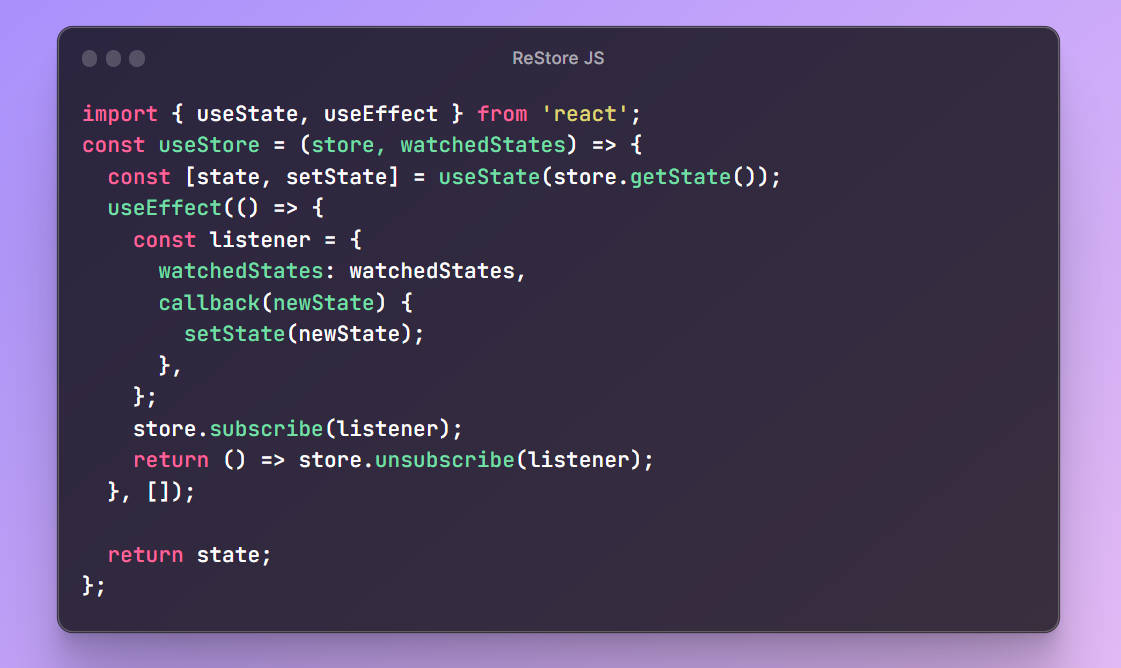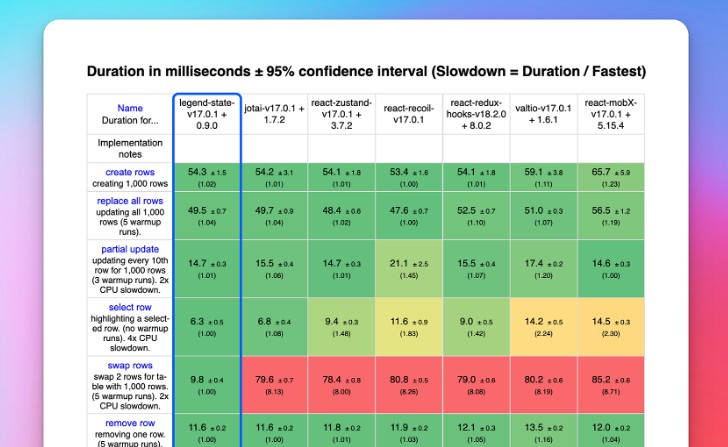ReStore JS
ReStore is a lightweight and simple state management library for JavaScript applications. It allows you to manage the state of your application and execute actions and mutations in a predictable and centralized way.
Installation
npm i @yunusemrejs/restore-js
Usage
Creating a Store
To create a store, you need to provide a StoreOptions object that contains the initial state of your application, the actions, mutations, and middlewares
import { createStore } from '@yunusemrejs/restore';
const store = createStore({
state: {
count: 0,
message: 'Hello, World!',
},
actions: {
increment(store, payload) {
store.commit('increment', payload);
},
},
mutations: {
increment(state, payload) {
state.count += payload || 1;
},
},
middlewares: [],
});
Getting the State
To get the current state of the store, you can call the getState method.
const state = store.getState();
console.log(state.count); // 0
console.log(state.message); // 'Hello, World!
Changing the State
To change the state of the store, you need to call the commit method and pass the name of the mutation and an optional payload.
store.commit('increment', 5);
console.log(store.getState().count); // 5
Executing Actions
To execute an action, you can call the dispatch method and pass the name of the action and an optional payload.
console.log(store.getState().count); // 5
store.dispatch('increment', 3);
console.log(store.getState().count); // 8
Subscribing to State Changes
To subscribe to state changes, you can call the subscribe method and pass a listener object that contains a callback function and an array of watched state keys.
const listener = {
watchedStates: ['count'],
callback(state) {
console.log(`The count is now ${state.count}`);
},
};
store.subscribe(listener);
Unsubscribing from State Changes
To unsubscribe from state changes, you can call the unsubscribe method and pass the listener object.
store.unsubscribe(listener);
Using Middlewares
ReStore allows you to use middlewares to intercept and modify actions before they are executed and mutations before they update the state. Middlewares are functions that take a MiddlewareContext object as input and return a function that takes a next function as input.
const loggerMiddleware = (context) => {
return (next) => {
console.log(`Action ${context.actionName} was dispatched`);
const result = next(context.store, context.payload);
console.log(`The new state is ${JSON.stringify(context.store.getState())}`);
return result;
};
};
const store = createStore({
state: {
count: 0,
},
actions: {
increment(store, payload) {
store.commit('increment', payload);
},
},
mutations: {
increment(state, payload) {
state.count += payload || 1;
},
},
middlewares: [loggerMiddleware],
});
store.dispatch('increment', 3);
// Action increment was dispatched
// The new state is {"count":3}
How you can use in React
How you can use ReStore in a React application with hooks:
store.js
import { createStore } from 'restore-js';
const store = createStore({
state: {
count: 0,
},
actions: {
increment(store, payload) {
store.commit('increment', payload);
},
},
mutations: {
increment(state, payload) {
state.count += payload || 1;
},
},
middlewares: [],
});
export default store;
useStore.js
import { useState, useEffect } from 'react';
const useStore = (store, watchedStates) => {
const [state, setState] = useState(store.getState());
useEffect(() => {
const listener = {
watchedStates: watchedStates,
callback(newState) {
setState(newState);
},
};
store.subscribe(listener);
return () => store.unsubscribe(listener);
}, []);
return state;
};
export default useStore;
component.js
import store from './store.js'
import useStore from './useStore'
const MyComponent = () => {
const state = useStore(store,['count']);
return (
<div>
<p>Count: {state.count}</p>
<button onClick={() => store.dispatch('increment', 1)}>Increment</button>
</div>
);
};
export default MyComponent;
License
Copyright (c) 2023-present Yunus Emre Kara





